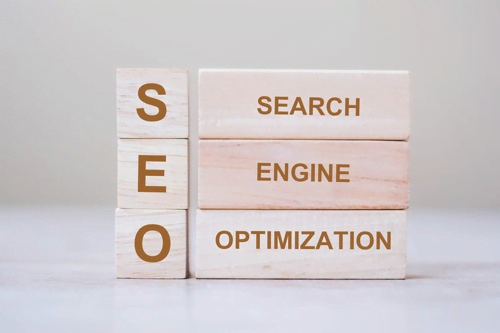
INTRODUCTION
In today’s fast-paced business world, technology is a critical factor in creating everything that determines the success or failure of a company. The emergence of new technologies has revolutionized the way businesses operate, from streamlining communication to improving productivity and transforming the way we interact with customers.
In this article, we will explore how technology has impacted business strategy and organizational decisions and how businesses can leverage technology to gain a competitive edge.
Technology has had a profound impact on businesses and organizations worldwide, transforming the way they operate, compete, and succeed. In this article, we will explore the technological impact on business strategy, and how businesses can harness technology to gain a competitive advantage.
In recent years, technology has become an essential tool for businesses of all sizes. The advancement of technology has transformed the way businesses operate, from the way products are designed and manufactured to how they are distributed and sold.
Technology has also improved communication, enhanced productivity and transformed the way businesses interact with customers.
THE TRANSFORMATION OF BUSINESS STRATEGIES
Technology has transformed business processes in numerous ways. For example, companies can now use software and automation tools to streamline their supply chain processes. This reduces lead times and improves efficiency, which leads to cost savings.
In addition, digital technologies enable businesses to reach customers in new and innovative ways, such as through social media, email marketing and online advertising.
With the advent of technology, business processes have transformed from manual and tedious to automated and efficient. For instance- the manufacturing process has become more streamlined with the use of robots and automation technology.
The supply chain process has also become more efficient, with the use of software and artificial intelligence (AI) that can predict demand and optimize logistics.
Another area where technology has had a significant impact is customer service. With the rise of social media, businesses can now connect with their customers on a more personal level, leading to better customer engagement and retention.
Chatbots, AI-powered customer service assistants, and virtual assistants have also revolutionized customer service, providing 24/7 assistance to customers and increasing customer satisfaction.
Technology has also transformed manufacturing processes. Automation tools and robotics have improved efficiency and accuracy, while 3D printing technology has enabled companies to create custom parts and products quickly and cost-effectively.
Furthermore, data analytics and machine learning have allowed companies to optimize their production processes and improve product quality.

THE IMPACT OF ADVANCED BUSINESS TECHNOLOGY
The impact of tech on business strategy is significant. In today’s digital age, businesses must adapt to stay competitive, and technology is a critical tool in achieving this. For example, companies that leverage data analytics can gain valuable insights into customer behavior, market trends, and competitor activity. This enables them to make informed decisions and stay ahead of the competition.
Moreover, technology has enabled companies to personalize their products and services to meet the needs and preferences of individual customers. For instance, online retailers can use customer data to recommend products and services that are relevant to each customer, based on their past purchases and browsing history. This improves customer satisfaction and increases loyalty.
The impact of tech on business strategy has been profound and far-reaching. In today’s fast-paced and ever-evolving business landscape, technology has become an integral part of how businesses operate and compete. From improving efficiency and productivity to enabling new business models and enhancing customer experiences – technology has transformed the way businesses create value.
One of the key ways in which technology has impacted business strategy is by enabling businesses to collect, analyze and leverage data in new ways. With the rise of big data and advanced analytics tools, businesses can now gain deeper insights into their customers’ needs and preferences. This allows them to tailor their products and services more effectively, improve customer satisfaction and loyalty, and ultimately drive growth.
Technology has also enabled businesses to streamline their operations and improve efficiency. By automating routine tasks and processes, businesses can reduce costs, increase productivity and free up resources for more strategic initiatives. This can help them stay competitive in a rapidly changing market.
Another way in which technology has impacted business strategy is by enabling new business models. The rise of e-commerce platforms like Amazon has disrupted traditional retail models by allowing businesses to reach customers directly through online channels. Similarly, the sharing economy model enabled by platforms like Airbnb has disrupted traditional hospitality models by allowing individuals to rent out their homes or apartments to travelers.
Technology has also had a significant impact on how businesses communicate with their customers. Social media platforms like Facebook and Twitter have given businesses new channels for engaging with customers directly. This allows them to build stronger relationships with their customers by providing personalized experiences that meet their needs.

HARNESSING TECHNOLOGY FOR COMPETITIVE ADVANTAGE
To stay ahead of the competition, businesses must leverage technology to their advantage.
Here are some ways businesses can harness technology to their advantage:
Embrace Data Analytics
Data analytics is a crucial aspect of business strategy, providing insights into customer behavior, market trends, and business performance. By leveraging data analytics tools, businesses can make informed decisions, optimize their operations, and gain a competitive edge.
Adopt Cloud Computing
Cloud computing has revolutionized the way businesses store and access data. With cloud computing, businesses can access their data from anywhere, making it easier to collaborate with team members and work remotely. Cloud computing also reduces the cost of IT infrastructure and provides a more secure way to store data.
Implement AI and Automation
AI and automation technologies can help businesses automate repetitive tasks, reduce human errors, and optimize business processes. By implementing AI and automation, businesses can increase productivity, reduce costs, and gain a competitive edge.
Align Your Organizational Goals and Objectives
Organizational goals and objectives are the desired outcomes that a company wants to achieve over a specific period of time. They are strategically set by executives and managers to guide the direction, performance and growth of the organization. They also help align the efforts of different departments and teams toward the same goals and a common vision.

THE TRANSFORMATION OF BUSINESS PROCESSES
Technology has changed the way businesses operate in many ways, making it more convenient and effective for companies to run their daily activities. This change has affected every aspect of business processes, such as manufacturing, supply chain management, marketing, and customer service.
One of the main effects of technology on business processes is the possibility to automate tasks. Automation can save time and money while increasing productivity and efficiency. For example, manufacturing companies can use automation to improve production lines, minimize waste, and enhance product quality.
Also, automated systems can lower the chance of human error, which can improve product safety and reduce liability. Another effect of technology on business processes is the possibility to store and analyze large amounts of data.
Big data analytics can help businesses make better decisions by providing insights into customer behavior, business strategy important market trends, and operational performance.
This can help businesses discover new opportunities, optimize processes, and improve overall performance. Furthermore, technology has changed the way businesses manage their supply chains.
Supply chain management software can help companies monitor inventory levels, manage orders, and optimize delivery routes. This can help lower costs and improve delivery times which can improve customer satisfaction and increase loyalty and sales.
Implementing technology involves the formulation of key components and key elements in a good business strategy in order to reach the business goals. Putting technology to use can help to generate ideas and increase the visibility and reach of small businesses.
A business plan should contain necessary technological developments in order to get the technological change aspired. Many businesses are hiring new employees and spending more resources on technological innovation.

OUTLINES TO CREATE A SUCCESSFUL BUSINESS STRATEGY
Technology integration refers to the use of various digital tools and approaches to enhance business processes and outcomes. Technology integration can help businesses operate more efficiently, effectively and competitively in the global market.
Some of the benefits of technology integration for businesses are:
Enhanced data exploration:
Technology integration can empower businesses to access and examine vast amounts of data from diverse sources, such as customers, markets, operations and suppliers. This can offer valuable insights for decision-making, planning and strategy development.
Data accessibility can also improve communication and collaboration among different teams and stakeholders within and outside the core part of the organization.
Improved productivity and efficiency:
Technology integration can automate various tasks that are repetitive, time-consuming, or prone to human error. This can save time and money while increasing output and quality. For example- manufacturing companies can use automation to streamline production lines, reduce waste, and improve product quality.
Technology integration can also optimize processes by eliminating bottlenecks, redundancies and delays.
Increased innovation and growth:
Technology integration can foster a culture of innovation by enabling businesses to experiment with new ideas, products, services, or business models. Technology integration can also help businesses identify new opportunities by expanding their reach to new markets or customers. Moreover, technology integration can accelerate growth by scaling up operations without compromising performance or security.
Enhanced customer satisfaction and loyalty:
Technology integration can improve customer experience by providing faster, easier, and more personalized interactions. Technology integration can also help businesses anticipate customer needs and preferences by using data analytics and artificial intelligence (AI).
Furthermore, technology integration can increase customer loyalty by delivering consistent quality and value across different channels.
Competitive advantage:
Technology integration can give businesses an edge over their competitors by enabling them to offer unique solutions that meet customer expectations better than others. Technology integration can also help businesses adapt quickly to changing market conditions or customer demands by using agile methodologies.
Additionally, technology integration can protect businesses from threats such as cyberattacks or disruptions by using advanced security measures.

CONCLUSION
Technology integration in business operations can open up a world of possibilities. The right technology can boost various aspects such as data exploration, productivity, efficiency, innovation, growth, customer delight, loyalty and opposition advantage.
By leveraging digital tools and approaches, businesses can achieve their goals faster and more efficiently while staying ahead of the competition. Technology has sparked a remarkable transformation in business processes, changing how companies operate and engage with their customers.
It’s a game-changer and companies that can effectively leverage technology will gain a substantial competitive edge. A successful business strategy refers to technological innovation that can help achieve business objectives and the organization’s core values.
Those that fail to do so risk falling behind and missing out on the many benefits the tech world has to offer. With technology evolving at an unprecedented rate, the possibilities are endless and it’s fascinating to observe how businesses will adapt and embrace these changes.
The influence of technology on business strategy is undeniable. Integrating the right digital tools and strategies can be a game-changer for companies looking to stay ahead of the curve.
The potential benefits are vast including data accessibility productivity efficiency innovation growth customer satisfaction loyalty and competitive advantage. The right technology can transform how companies operate and interact with their customers leading to a remarkable transformation in business processes.
Those that can effectively harness technology will gain a substantial competitive edge while those that fail to do so risk falling behind. As technology advances at a breakneck pace the possibilities are endless and it’s fascinating to observe how businesses will adapt and embrace these changes.











